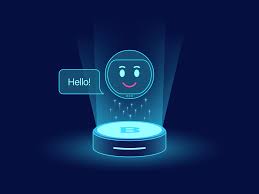How AI-Powered Virtual Assistants are Revolutionizing Modern Life
In today’s fast-paced and technology-driven world, people are always looking for ways to make their lives easier and more efficient. One of the latest and most popular innovations in this regard is AI-powered virtual assistants. These virtual assistants are powered by artificial intelligence and can perform a wide range of tasks for their users, from setting reminders and scheduling appointments to ordering groceries and controlling smart home devices.
In this article, we will explore the many benefits of AI-powered virtual assistance and how they are revolutionizing modern life.
Increased Productivity
One of the most significant benefits of AI-powered virtual assistants is increased productivity. These assistants can help users manage their tasks and schedules more efficiently, allowing them to focus on more important things. For example, a virtual assistant can schedule appointments, set reminders, and even send emails or messages on behalf of the user. This frees up valuable time and allows the user to be more productive in their work or personal life.
In addition to managing tasks, virtual assistants can also help users find information quickly and easily. Whether it’s researching a topic, finding a restaurant or booking a flight, a virtual assistant can do it all in a matter of seconds. This eliminates the need for users to spend hours searching the internet or making phone calls, saving them time and increasing their productivity.
Improved Accessibility
Another significant benefit of AI-powered virtual assistants is improved accessibility. These assistants are designed to be user-friendly and accessible to everyone, regardless of their level of tech-savviness or physical ability. For example, virtual assistants can be used through voice commands, making them an excellent option for people with disabilities or those who have difficulty using traditional devices.
Virtual assistants can also be accessed from anywhere, at any time, as long as there is an internet connection. This means that users can stay connected and productive even when they are on the go or away from their desk.

Enhanced Personalization
AI-powered virtual assistants are also highly customizable, allowing users to tailor them to their specific needs and preferences. For example, users can choose the virtual assistant’s voice, language, and even its name. Additionally, virtual assistants can learn from user interactions, making them more personalized and intuitive over time.
This personalization also extends to the tasks that virtual assistants can perform. Users can choose which tasks they want their assistant to handle, such as scheduling appointments or ordering food, and which ones they prefer to do themselves. This level of customization allows users to get the most out of their virtual assistant and make it an integral part of their daily routine.
Cost-Effective
AI-powered virtual assistants can also be cost-effective, especially for small businesses or individuals who can’t afford to hire a personal assistant. Virtual assistants can perform many of the same tasks as a human assistant, such as scheduling appointments, managing emails, and booking travel, but at a fraction of the cost.
Furthermore, virtual assistants can handle multiple tasks simultaneously, allowing businesses to save even more money by reducing the need for additional staff. This makes virtual assistants an excellent investment for businesses of all sizes.
Improved Customer Service
Finally, AI-powered virtual assistants can improve customer service by providing quick and accurate responses to customer queries. Virtual assistants can be programmed to answer frequently asked questions, direct customers to the right department, and even provide troubleshooting assistance.
This level of customer service can help businesses improve customer satisfaction and loyalty, as customers appreciate quick and efficient responses to their queries. Virtual assistants can also reduce the workload of customer service representatives, allowing them to focus on more complex queries and provide personalized assistance.
Conclusion
AI-powered virtual assistants are revolutionizing modern life by making it easier, more efficient, and more accessible. These assistants can increase productivity, improve accessibility, enhance personalization, and reduce costs for businesses and
individuals. Additionally, they can improve customer service and satisfaction, making them an invaluable tool for businesses looking to stay competitive in today’s fast-paced market.
As with any technology, there are potential downsides to AI-powered virtual assistants, such as concerns about data privacy and security. However, with proper safeguards and protocols in place, these concerns can be addressed, and the benefits of virtual assistants can be fully realized.
AI-powered virtual assistants have the potential to transform the way we live and work, making our lives easier, more efficient, and more enjoyable. As the technology continues to evolve and improve, we can expect to see even more benefits from AI-powered virtual assistants in the years to come.
From helping individuals manage their personal lives to revolutionizing customer service for businesses, the possibilities are endless. The convenience and efficiency of virtual assistants are unmatched, allowing users to save time and focus on more important tasks. As AI technology continues to advance, virtual assistants are becoming more intuitive and personalized, making them an even more valuable tool for users.

As more businesses and individuals adopt AI-powered virtual assistants, we can expect to see a significant shift in the way we interact with technology. Virtual assistants have the potential to become a central hub for all our digital interactions, from scheduling appointments and managing finances to ordering groceries and controlling smart home devices.
Overall, AI-powered virtual assistants are a game-changer in the world of technology, offering numerous benefits for users and businesses alike. As we continue to navigate the digital age, virtual assistants will undoubtedly become an essential tool for staying organized, productive, and connected in an increasingly fast-paced and complex world.
In addition to the benefits discussed above, virtual assistants also have the potential to improve healthcare outcomes. For example, virtual assistants can be programmed to remind patients to take their medication at specific times, helping to improve medication adherence and reduce the risk of adverse health outcomes. They can also help patients manage chronic conditions by providing them with information about their condition and offering support and guidance on managing their symptoms.
Virtual assistants can also assist healthcare providers by automating administrative tasks, such as scheduling appointments and managing patient records. This allows healthcare professionals to focus on providing high-quality care to their patients and can reduce administrative costs for healthcare facilities.
















